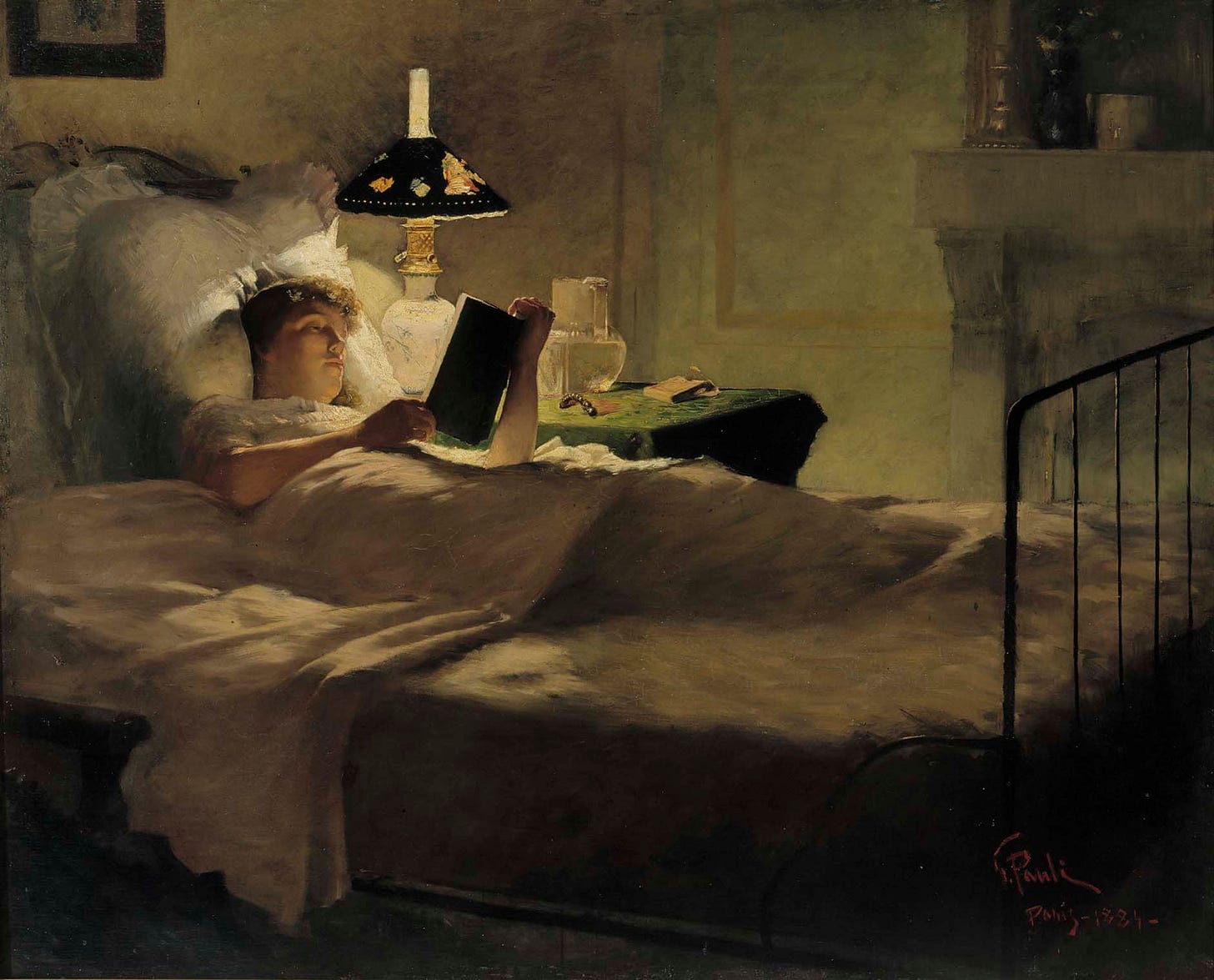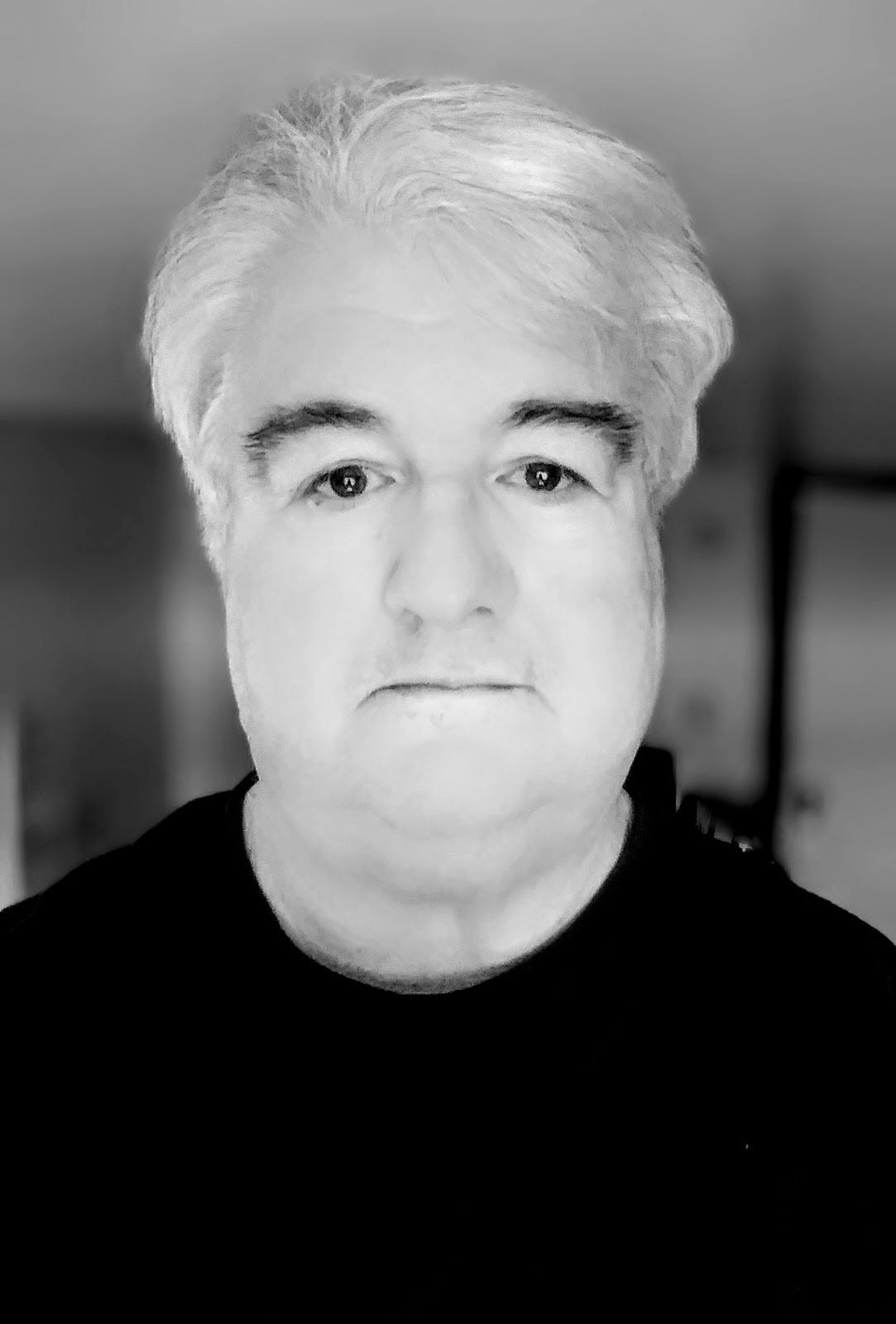By way of introduction: Reading after dusk
Jay Rothermel is a reader and amateur scholar of genre literature, with special interest in horror, weird, and strange fiction.
Growing up, I read horror because it was easy. Now I read horror (and allied genres) because it is not easy. In fact, it is “devilish hard on the nerves” and hardly a solace in my declining years.
But it is sobering. And in instances of real readerly luck, sublime.
* * *
Longinus used the title "On the heights" for his short treatise that has come down to us as "On the Sublime."
I prefer "On the heights" as a designation of sublime, lofty, and ecstatic writing in all modes and genres. I came late in life to understand that as a reader this was what I had been pursuing. It only occurred consciously to me in summer 2017, as I read Arthur Machen's "A Fragment of Life."
* * *
What for me are the literary works that achieve Longinian "heights"?
There are a few. Moonfleet (1898) by J. Meade Falkner; "N." (1936) by Arthur Machen; Doctors Wear Scarlet (1960) by Simon Raven; Earthly Powers (1980) by Anthony Burgess.
An idiosyncratic list, I am the first to admit. It leaves out some primary sources of literary pleasure from my belletristic education in fiction: Conan Doyle, Mary Elizabeth Braddon, E. Nesbit, Wodehouse, Ramsey Campbell.
* * *
Beyond the sublime, my novel-length horror fiction choices might be of interest. (The best horror fiction has always been of shorter length, at least prior to the bestseller inflation inaugurated with Rosemary's Baby, The Other, and The Exorcist).
My top 10 horror novels in English:
The Picture of Dorian Gray (1890) by Oscar Wilde
Dracula (1897) by Bram Stoker
The Ghost Pirates (1909) by Hope Hodgson
The Hole of the Pit (1914) by Adrian Ross
The Terror (1917) by Arthur Machen
Conjure Wife (1953) by Fritz Lieber
Doctors Wear Scarlet (1960) by Simon Raven
The Case Against Satan (1962) by Ray Russell
Dreamthorp (1989) by Chet Williamson
The Darkest Part of the Woods (2004) by Ramsey Campbell
My nonfiction references are fewer:
The Darkening Garden: A Short Lexicon of Horror (2006) by John Clute
Weird Fiction in Britain 1880-1940 (2018) by James Machin
Short fiction:
"Alfandega 49A" by Edward Lucas White
"The Red Bungalow" by B. M. Croker
"Wolverton Tower" by Grant Allen
"The Imp of the Perverse" by Edgar A. Poe
"The Cask of Amontillado" by Edgar A. Poe
"Old Fags" by Stacy Aumonier
"The Ambitious Guest" by Nathaniel Hawthorne
Short horror fiction I should have read but have not: Pushkin, Hoffmann, Melville, Leonid Andreyev.
Short horror fiction collection masterpiece: Flowers of the Sea: Thirteen Stories and Two Novellas by Reggie Oliver
Short horror fiction anthology masterpieces: And The Darkness Falls Edited by Boris Karloff; Dark Forces Edited by Kirby McCauley
Short horror fiction non-fiction Study: Elegant Nightmares: The English Ghost Story from Le Fanu to Blackwood by Jack Sullivan
Short horror fiction authors: E. Nesbit, Mary E. Wilkins Freeman, Ramsey Campbell; Reggie Oliver
* * *
What does all this listing have to do with one reader's amateur newsletter?
Simply--I think--a caution on how best to gauge your expectations.
If you are there at all.
Jay
3 May 2023
______
Jay Rothermel is a reader and amateur scholar of genre literature, with special interest in horror, weird, and strange fiction.




